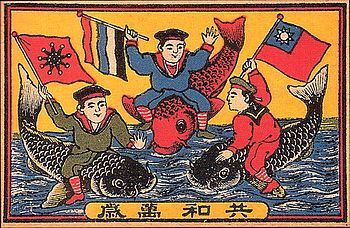Ab Ovo
Throwing my life away on silly entertainments
- Location
- USA
The Commonwealth of Virginia it is! North America is bound to be interesting.



As the House of Delegates gathers in Richmond to decide the course of the Virginian nation, the newborn country is a fragile place. Following the fall of Montgomery to radical elements Articles of Secession were swiftly ratified in Richmond and, only slightly later, Raleigh as well. Given the instability of the surrounding region and generally poised stance of its impromptu military Virginia is not in immediate danger of collapse... for now. While politicians argue and pontificate in Richmond the nation is guided by a select and provisional few, including:
- Edward Fitzhugh Curtis, who serves as the interim President of the Commonwealth. A vaunted member of the First Families, Curtis was serving as Governor when Virginia's secession was ratified by the House and needed little persuasion to add his signature. Thinking of Virginia as the genteel, intelligent, civilised bastion of humanity on the North American continent President Curtis has -- with the support of the Virginian military -- strongly put forth the idea of a 'preemptive security action' in Kentucky and possibly Tennessee.
- William Gaston Caperton III, who is the interim Home Secretary of the Commonwealth. Formerly serving as State Attorney-General, Caperton was the scion of the ancient Caperton family -- a First Family which had settled in western Virginia when plantation land (such as it could be found) was cheap in the aftermath of the War of Northern Aggression. Although they subsequently developed a reputation as mavericks and hicks amongst the others of Virginian gentry the Capertons were sufficiently blue-blooded to see Bill Caperton ride to office on Custis' coattails after a successful career in the House of Delegates. In the turbulent days after the 'second secession' Caperton has found himself suddenly with a great deal of power and only vaguely-defined duties. Who in government will receive his blessings is a question much-pondered in the antiquated drawing rooms of Richmond and Alexandria.
- Bradley Arthur Gooch, who is presently the Chief of Staff of Virginia's military forces. Formerly a commanding officer who served in domestic, anti-uprising posts prior to Virginian independence, Gooch was well-regarded and on his way up the latter when word of the secession came from Richmond. Alongside roughly two dozen other native Virginians at his posting he immediately returned home to serve, and used his old-money connections and well-earned reputation to secure the top spot in Virginia's nebulous military. The headaches of standardising and integrating former Confederate Army soldiers who had been stationed out-of-state alongside the men of the Virginia and formerly North Carolina Home Armies are proving to be quite severe.
- R. Catesby Taliaferro, who is among the most unqualified of men to hold his present office as Secretary of State for the Commonwealth. At 84 years old, Taliaferro is the epitome of old Virginia aristocracy: a Classicist, philosopher, and mathematician without any experience whatsoever -- not to mention one approaching senility at a quickstep pace -- who was appointed solely as a bone thrown to the Taliaferro family and their allies who felt slighted by their non-inclusion. Although he is assisted ably by Philip Douglass, a 'common man' with no relation whatsoever to any of the First Families, as his Deputy Secretary, it remains to be scene whether Taliaferro's unique qualifications will cause trouble for the Virginian government.

Last edited:

